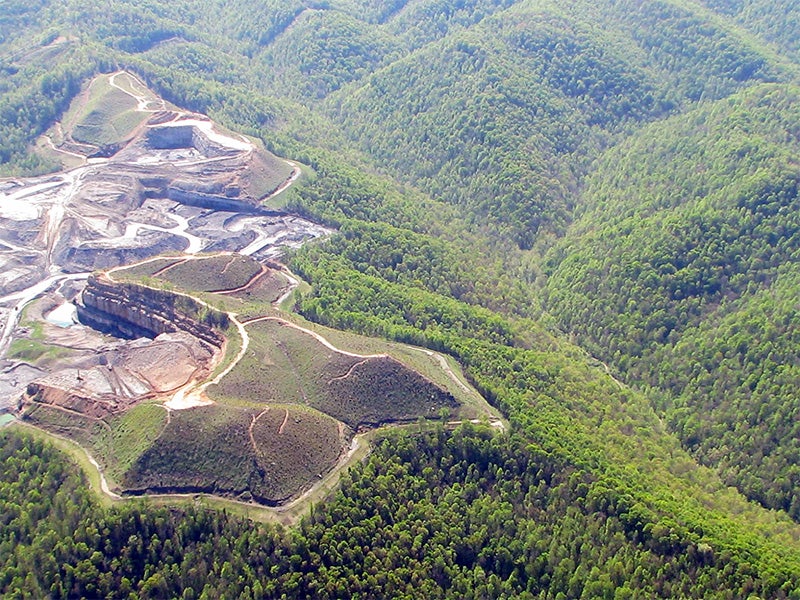Biggest Mountaintop Removal Mine Vetoed – A Win for Appalachia
Coal mine finally stopped as EPA rejects Spruce No. 1 Mine

This page was published 15 years ago. Find the latest on Earthjustice’s work.
Today, after a generation of blasting its way virtually unhindered across Appalachia, the coal industry has been defused. The EPA announced its veto of what would have been the largest mountaintop removal operation in West Virginia — Arch Coal’s Spruce No. 1 Mine.
The EPA’s unprecedented action spares the land, protects those in the area of the proposed mine, and must be seen as a huge victory for communities across Appalachia. They have hope at last that this most destructive form of coal mining is finally being reined in. It is a huge victory for them and for all Americans joined in the struggle to protect our air and water from industrial pollution.
The impacts of this decision are profound:
The law of the land stands strong today. The Obama administration and EPA Administrator Lisa Jackson are finally wielding the authority granted by the Clean Water Act. By vetoing the permit issued by the Army Corps of Engineers, they have saved nearly seven miles of vital streams and more than 2,000 mountain acres in an important part of Appalachia, Logan County, West Virginia.
Justice comes to Appalachia. Today’s decision means that people in Appalachia are finally receiving protections of the law. This is a part of the country where profits are continually prioritized over public health, where streams are buried and water supplies are poisoned and mountains and ecosystems are laid to waste, and where the people rank among the poorest despite the coal companies’ wealth and power. The EPA is finally acknowledging the environmental injustice and doing something about it.
Our voices make a difference. If ever you thought that your one little voice, your one little action, your one little e-mail or letter or phone call to the federal government didn’t make a bit of difference, take heart today. More than 50,000 people wrote the EPA about this permit, and the EPA wrote that these public outcries were taken into account. Earthjustice supporters alone sent nearly 38,000 letters and comments to EPA! Let’s remember today’s victory next time we have doubts about whether our voices can be heard.
The public prevails over corporate special interests and their friends in Congress. This decision rebuffs extreme scare tactics by those seeking to take away or block public health protections. It is a disappointment to see those in Congress who are supposed to represent our future, health and well-being instead represent corporate special interests. Today’s decision should send the message to those members of Congress that need to start caring more about the health of people and the survival of our precious waters and mountains than the profit margin of any one mining company. We know we’re going to have to continue confronting this betrayal over and over again in Congress. With today’s victory, we know we can win.
Read what Earthjustice and our partners in the coalfields had to say about today’s victory over Arch Coal’s Spruce mine (full press release here):
Established in 1989, Earthjustice's Policy & Legislation team works with champions in Congress to craft legislation that supports and extends our legal gains.
Earthjustice’s Washington, D.C., office works at the federal level to prevent air and water pollution, combat climate change, and protect natural areas. We also work with communities in the Mid-Atlantic region and elsewhere to address severe local environmental health problems, including exposures to dangerous air contaminants in toxic hot spots, sewage backups and overflows, chemical disasters, and contamination of drinking water. The D.C. office has been in operation since 1978.